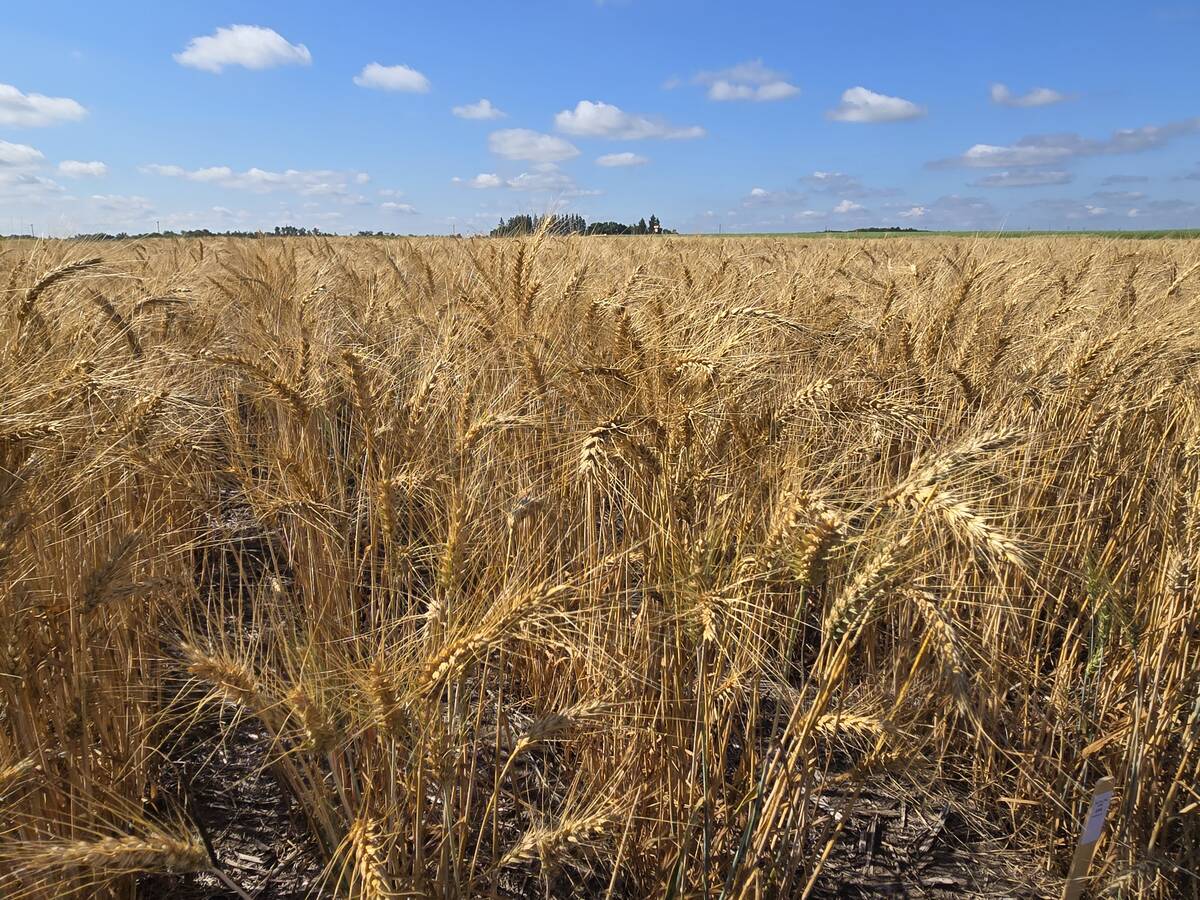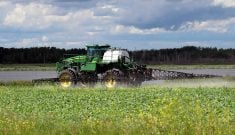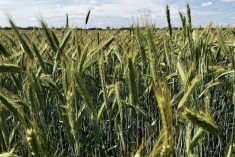Manitoba farmer, industry, research and government collaborations are the typical modus operandi of Manitoba’s four crop diversification centres.
The studies highlighted during an Aug. 6 field tour at the Carberry site, The Manitoba Crop Diversification Centre, were no exception.
Winter wheat shows climate, wildlife benefits
Read Also

Trade uncertainty, tariffs weigh on Canadian beef sector as market access shifts
Manitoba’s beef cattle producers heard more about the growing uncertainty they face as U.S. tariffs, and shifting trade opportunities, reshape their market.
Winter wheat was noted as a resilient crop option to attendees, one that’s good for the birds as well.
Alex Griffiths of Ducks Unlimited Canada presented research that had found significant wildlife habitat benefits to the crop alongside agricultural potential.
“Winter wheat provides excellent nesting habitat for both waterfowl and other upland game birds,” Griffiths said.
Their study has shown that a nest has a 38 per cent chance of hatching in winter wheat, compared to spring wheat where there was 12 per cent chance of surviving to hatch, Griffiths said. The group also found only one nest in every 55 acres of spring wheat.
The research suggested that winter wheat gives 24 times more nesting habitat than spring wheat.
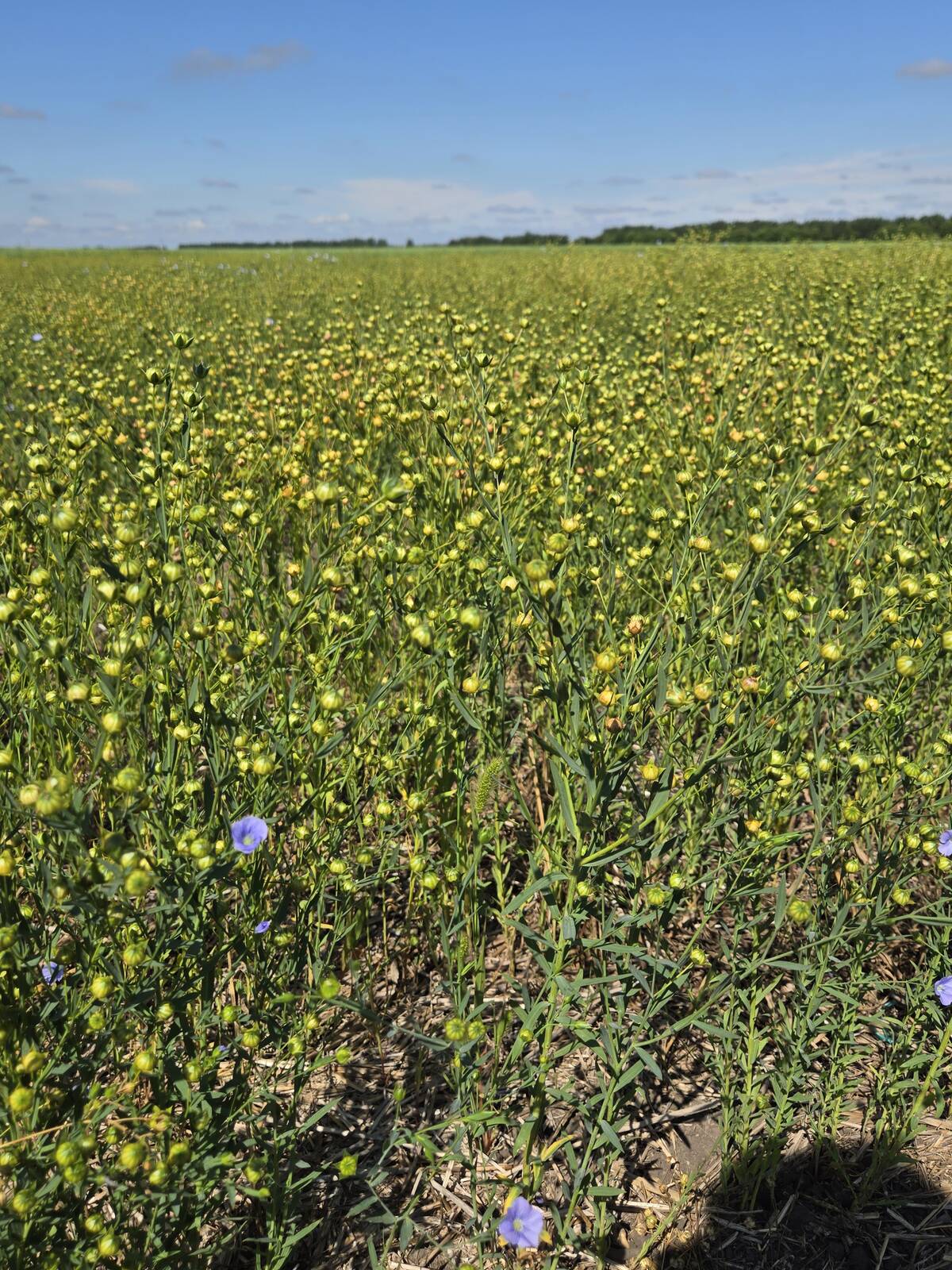
Flax research addresses producer concerns
Seed treatment trials in flax are attempting to address longstanding producer concerns about the crop’s waxy seed coat affecting treatment adhesion.
The research focuses on practical benefits, said Morgan Cott, an agronomy extension specialist with the Manitoba Crop Alliance.
“I’m more concerned about the benefits of a seed treatment for getting the profit off the ground, having a little bit of strength so that we can grow a strong plant,” she said.
The flax industry has seen significant variety shifts, with CDC Rowland growing from 32 per cent to 62 per cent market share in Manitoba between 2023 and 2024, according to Sonia Wilson, oilseeds specialist with Manitoba Agriculture.
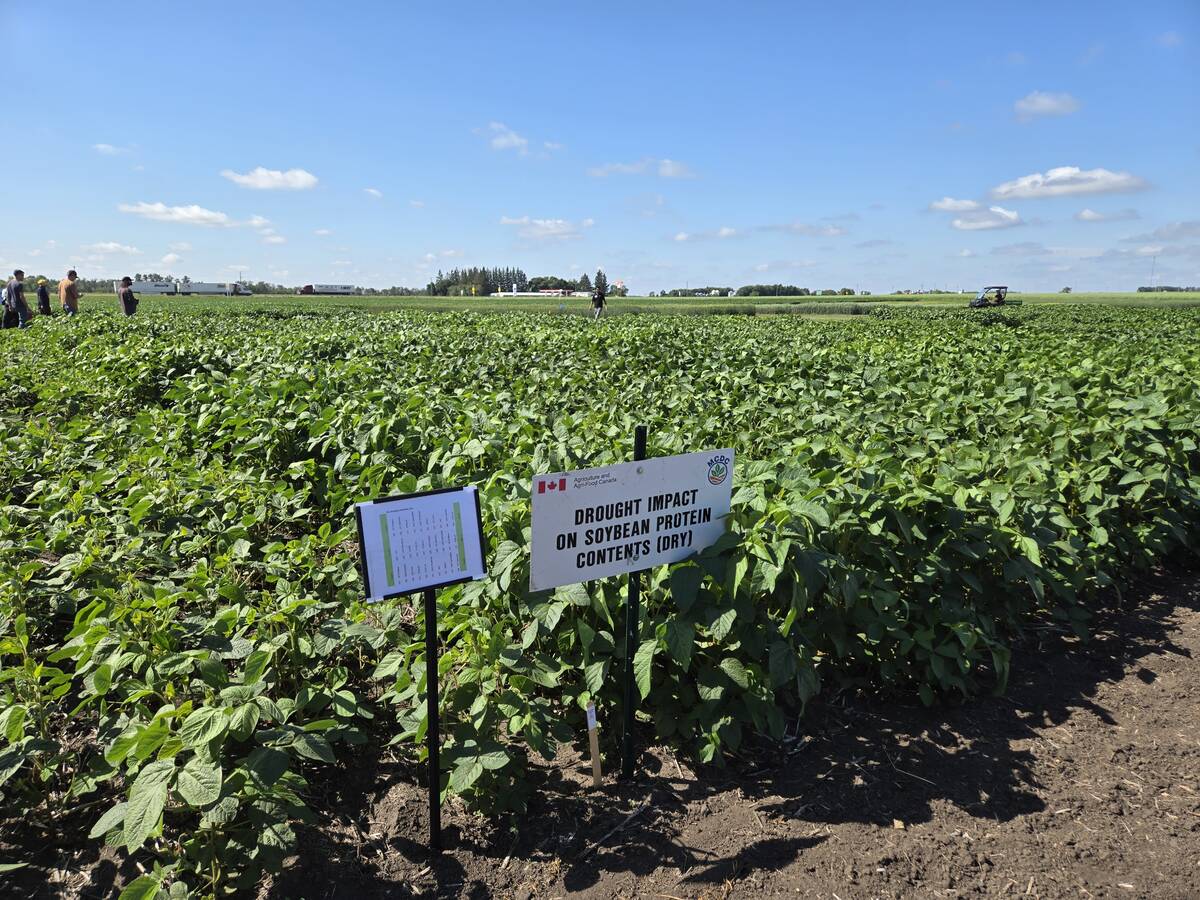
Bio-stimulant testing reflects global trends
Researchers at MCDC are also testing bio-stimulants on soybeans as interest grows in natural crop enhancement products. Bio-stimulants represent a $1.5-million U.S. global market, with 33 per cent of American producers having tried some form of bio-stimulant products, said Baljeet Singh of Assiniboine College.
“Bio-stimulants are natural products that naturally enhance the plant’s capability to absorb nutrients from the soil. They also make plants little stronger…so that you withstand pest attacks,” Singh said.
Check future updates and print editions of the Manitoba Co-operator for more on these projects.


